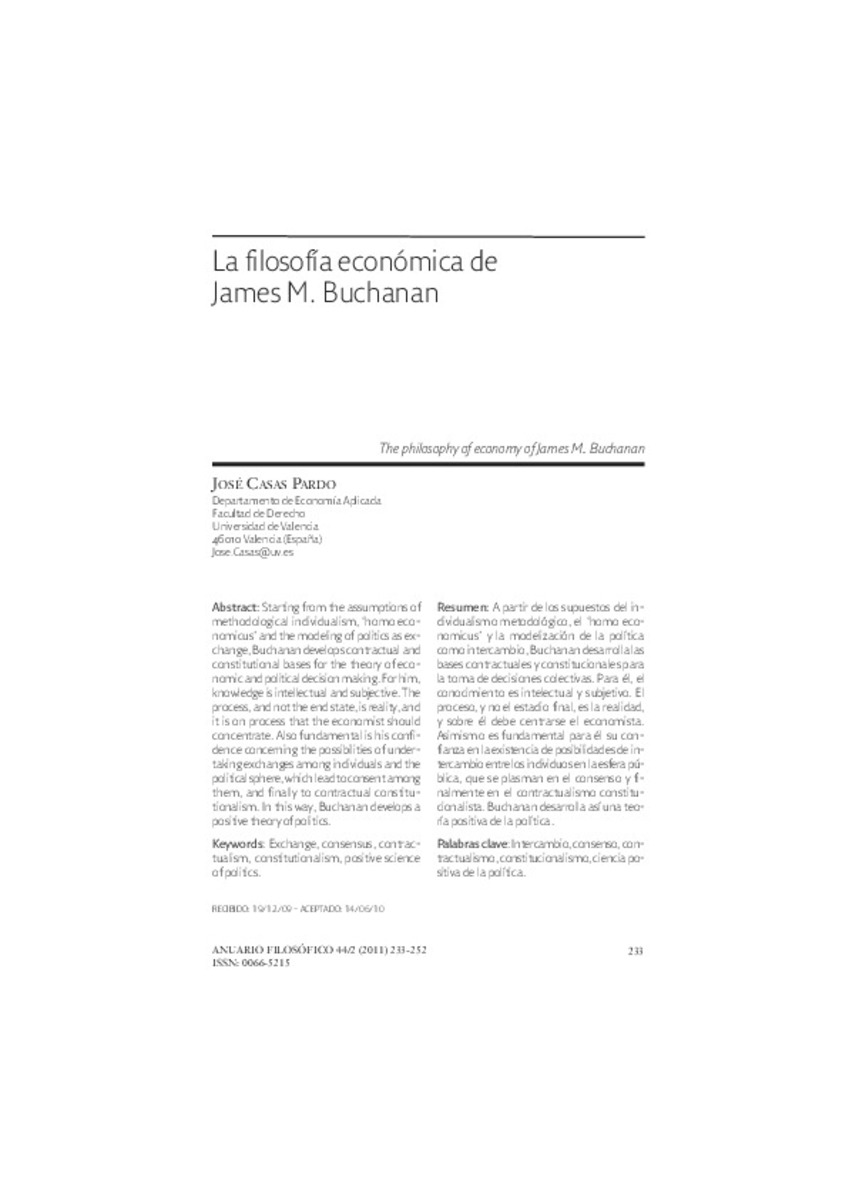Full metadata record
| DC Field | Value | Language |
|---|---|---|
| dc.creator | Casas, J. (José) | - |
| dc.date.accessioned | 2012-07-20T12:05:52Z | - |
| dc.date.available | 2012-07-20T12:05:52Z | - |
| dc.date.issued | 2011 | - |
| dc.identifier.citation | Casas, J. (2011). ""La filosofía económica de James M. Buchanan"". Anuario Filosófico, 44 (2), 233-252 | es_ES |
| dc.identifier.issn | 0066-5215 | - |
| dc.identifier.uri | https://hdl.handle.net/10171/22932 | - |
| dc.description.abstract | Starting from the assumptions of methodological individualism, ‘homo economicus’ and the modeling of politics as exchange, Buchanan develops contractual and constitutional bases for the theory of economic and political decision making. For him, knowledge is intellectual and subjective. The process, and not the end state, is reality, and it is on process that the economist should concentrate. Also fundamental is his confidence concerning the possibilities of undertaking exchanges among individuals and the political sphere, which lead to consent among them, and finally to contractual constitutionalism. In this way, Buchanan develops a positive theory of politics. | es_ES |
| dc.language.iso | spa | es_ES |
| dc.rights | info:eu-repo/semantics/closedAccess | - |
| dc.subject | Intercambio | es_ES |
| dc.subject | Consenso | es_ES |
| dc.subject | Contractualismo | es_ES |
| dc.subject | Constitucionalismo | es_ES |
| dc.title | La filosofía económica de James M. Buchanan | es_ES |
| dc.type | info:eu-repo/semantics/article | es_ES |
| dc.type.driver | info:eu-repo/semantics/article | es_ES |
| dc.identifier.doi | 10.15581/009.44.1414 | es_ES |
Files in This Item:
Statistics and impact
Items in Dadun are protected by copyright, with all rights reserved, unless otherwise indicated.






